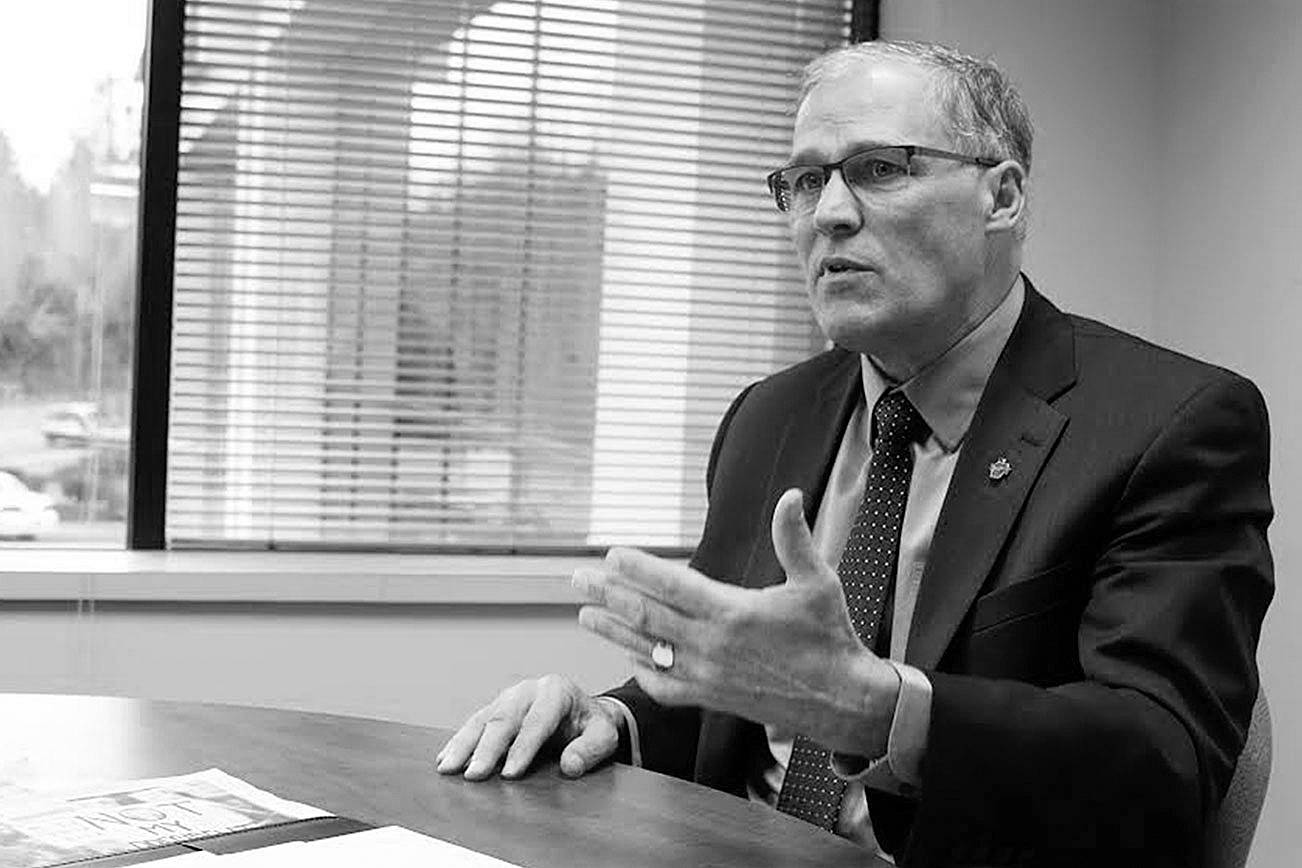Twenty-seven months ago Gov. Jay Inslee set out to curb emission of carbon pollutants through a sweeping rewrite of the state’s clean air rules.
A week ago a Thurston County judge said Inslee’s executive fiat went too far.
Superior Court Judge James Dixon concluded the governor’s Department of Ecology exceeded its authority with the regulatory scheme it developed and had been taking steps to put in place.
Inslee didn’t issue a statement on receiving this legal lump of coal.
His spokeswoman, Jaime Smith, said in an email that the ruling is “disappointing” and they are looking into options the department can pursue.
The rule targeted the state’s largest emitters of greenhouse gases, such as natural gas distributors, petroleum product producers and importers, power plants, metal manufacturers, and landfill operators. Large manufacturing operations, such as the Boeing Co. plant in Everett, also made the list of those expected to be affected at some point in the future.
Inslee wanted to require those large polluters to reduce carbon emissions by an average of 1.7 percent annually. Initially, the rule would apply to those that release at least 100,000 metric tons of carbon a year. Every three years the threshold would drop and as a result more companies would be subject to the requirements.
From the outset, the Association of Washington Business (AWB) opposed the approach as an overreach from the executive branch. Two years and 29,000 pages of legal filings later, a judge agreed.
Dixon, ruling from the bench, concluded the department’s regulatory reach is limited to those companies that directly introduce contaminates into the air, said Bob Battles, AWB’s general counsel. It lacked authority to regulate suppliers of natural gas and petroleum products because they are not an emitting party, he said.
This is a crushing blow for the governor.
The clean air rule is the centerpiece of Inslee’s legislative and political crusade against climate change. He’s called it “the nation’s first Clean Air Rule, to cap and reduce carbon pollution.” He touted it on college campuses around the state and at international conferences around the globe.
Now it’s gone.
There may be an appeal. Ecology’s lawyers want to see if at least the portion of the rule applying to emitters such as refineries can go forward.
But adjudicating this matter further will take time. If there are appeals, it’s unlikely the regulation as now written could be enforced before the end of the governor’s second, and possibly last, term as governor.
At this point, he’s got to be looking to the Legislature or the electorate for an assist.
Democratic lawmakers could provide it by using their majorities in the House and Senate to send him legislation directing new regulations be imposed on carbon polluters.
And it’s probably just a happy coincidence that Dec. 14, one day before the judge put the kibosh on his rule, Inslee said he’ll put forth a new carbon pricing scheme sometime next month which they’ll be able to consider.
But Dems have struggled mightily to agree among themselves on what to do on climate change so don’t count on 2018 being much different.
Voters seem like the best bet at this point.
If environmentalists can get a measure on next November’s ballot and wealthy Inslee friends like billionaire Tom Steyer cq JC pony up enough dough, it could pass.
That certainly would ease the sting of getting the lump of coal.
Talk to us
Please share your story tips by emailing editor@kentreporter.com.
To share your opinion for publication, submit a letter through our website https://www.kentreporter.com/submit-letter/. Include your name, address and daytime phone number. (We’ll only publish your name and hometown.) Please keep letters to 300 words or less.

